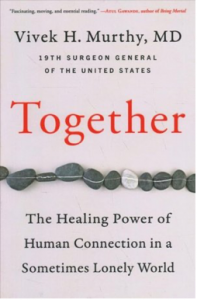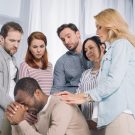Are you neurotic, narcissist or neurotypical?
Regardless of how hurtful people can be, if we are in a relationship with them, we tend to assume that they share our similar values. But this isn’t always true. And this common assumption can get us in a lot of trouble, especially with narcissists.
While there are others that think like us (to some degree), these days, we regularly encounter people who shock us. We find ourselves saying, “How could they say (or do) such a thing?” “Doesn’t he/she care about my feelings?” And if we love the person, we might find ourselves making excuses for a person who has hurt us because we want so desperately to hold onto our original view of the person we fell in love with in the first place.
Read MoreWe Need Trust to Thrive
My world without trust
I grew up in an environment where I was regularly criticized, berated, or yelled at for minor infractions. I never knew when the tirades would come, and so I tried at all costs to avoid my parents. But it wasn’t easy to thrive in our small home. I didn’t know who I could trust. I felt like I was constantly walking on eggshells, and because I felt I could be blamed for just about anything, the world did not feel like a safe, just, or fair place to be.
It took decades to finally understand the diagnoses that explained my parent’s behaviors. But as a kid, it was much harder to make sense of the anger. I alternated between trying to please them and lashing out. Because I couldn’t make sense of my life at home and lacked healthy parenting, I had to draw my own conclusions about the world. I decided that I had to take care of myself. I couldn’t trust people of authority or God. Love wasn’t something that I could count on. I couldn’t trust that good things or good people could come my way.
Read MoreHow to Overcome Loneliness
Many of us have experienced loneliness at some point in our lives. Regardless of whether we are with people or not, it can manifest as this aching sense of not feeling heard or understood.
Loneliness increases our risk for depression, anxiety, and addictions as well as chronic diseases. It is a huge problem with the elderly, and people suffering from disabilities. And in the middle of a pandemic, the pervasive of loneliness is a huge social concern!
Levels of connection
 While we all have different needs with regards to the number of people we interact with, Dr. Vivek Murthy, MD., author of Together: the healing power of human connection in a sometimes lonely world says we need 3 levels of connection:
While we all have different needs with regards to the number of people we interact with, Dr. Vivek Murthy, MD., author of Together: the healing power of human connection in a sometimes lonely world says we need 3 levels of connection:
Lessons Learned From the Pandemic: Part 1
Ever since I heard the story of John Snow and his discovery of the source of cholera over 2 decades ago, I’ve been fascinated by how epidemiologists fight epidemics. There are clear patterns and standard protocols that they use to fight infectious disease, and familiar trends with how the public responds.
The standard protocols and our response make sense, if you know the patterns.
At the same time, through my own journey of trauma and recovery, I’ve come to a stage called post traumatic growth. In the stage of post traumatic growth, you become grateful for the past, regardless of how horrific it was, because it’s taught you a lesson. Your pain, and your journey through it, gives you meaning, as it drives you to find a way to protect others who are vulnerable.
Thus, when unspeakable tragedy hits our country, I often wonder if there’s a lesson we are being called to learn.
Because one of my passions is to understand how we can thrive as a society, the answers came to me swiftly. I came up with 9 lessons that I believe will help make us a happier, healthier and a more resilient country. And they are important lessons we need to learn to effectively fight pandemics.
This is my first article in my 9-part series:
Lessons learned from the pandemic
Lesson #1:
Read MoreFrom Caregiver Burnout to Empowerment
Caregiver burnout for Annie
My client *Annie had a very demanding mother. She’d find any excuse she could to get Annie to come help her. Then when Annie would go fix her latest problem, she’d complain about how she had no one to help her. Her mom also constantly complained about how lonely she was, and she’d regularly accuse my client of not spending enough time with her. While she could have asked the people she lived with to help, her mom wouldn’t ask them to help her. It seemed the only person she wanted help from was her daughter, and Annie felt like she could never please her mom.
Annie was tired of being sucked into her mom’s drama.
Read MoreForgive But Don’t Forget
I think the pressure to turn the other cheek (forgive) is damaging.
Why?
Yes.. Jesus turned the other cheek.
But Jesus wasn’t an abused wife of a narcissist who had been lying to her for decades about his infidelity or whereabouts.
Jesus didn’t have drug addicted or sociopathic parents, that chronically abused him.
Jesus didn’t grow up in a Romanian orphanage without loving touch, adequate food, with barely any stimulation.
And Jesus wasn’t a woman.
Read More








